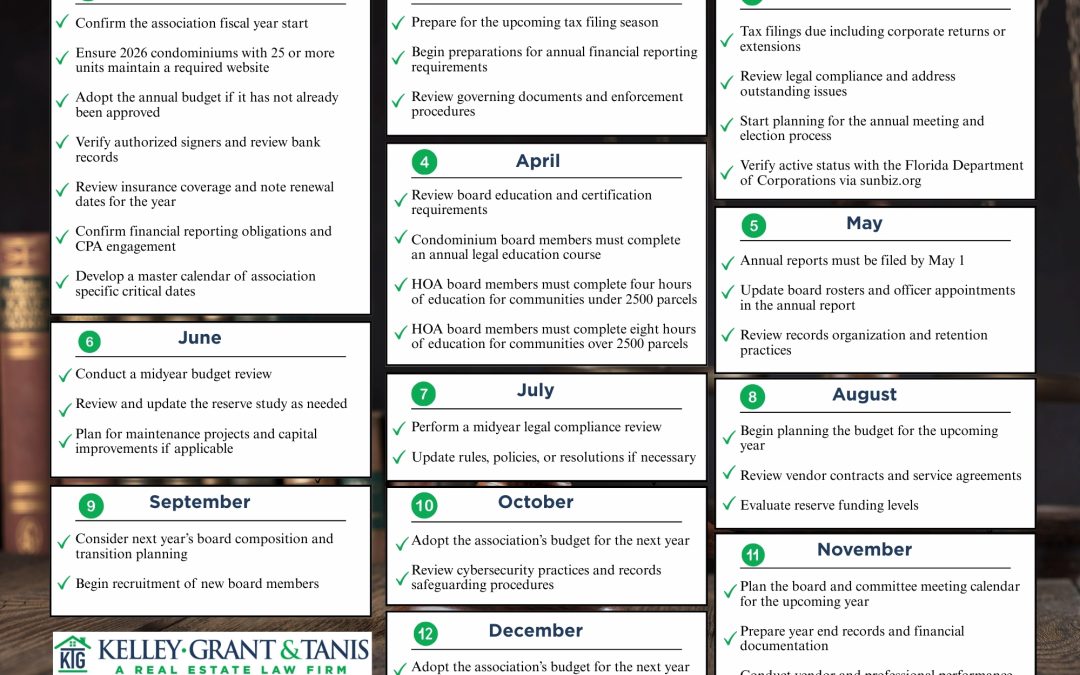
by kelleyandgrantlaw | Jan 15, 2026 | Articles, Association Law, HOA
Effective association governance requires consistent planning, timely compliance, and proactive decision making throughout the year. This 2026 Association Planning Calendar provides a month by month overview of key financial, legal, operational, and governance...

by kelleyandgrantlaw | Sep 17, 2025 | Articles, Association Law, HOA
What This Means for Your Association Effective July 1, 2025, all condominium and cooperative associations in Florida are required to create an online account with the Department of Business and Professional Regulation (DBPR) and provide the requested information. This...
by wesmartin | Sep 3, 2025 | Articles, Estate Planning
Estate planning involves preparing for medical situations where you may not be able to make your own decisions. It’s often much more complex than simply inheriting a property. Florida law recognizes living wills and healthcare surrogate designations as essential...
by wesmartin | Sep 3, 2025 | Articles, Estate Planning
Many Florida residents divide their time between here and another state. These “snowbirds” enjoy the benefits of living in Florida part of the year, but they also face estate planning challenges. Different state laws can affect wills, trusts, taxes, and healthcare...
by wesmartin | Sep 3, 2025 | Articles, Estate Planning
Estate planning is more than just deciding who inherits your property. It also involves preparing for situations where you may be unable to manage your own affairs. A durable power of attorney (DPOA) is one of the most important legal tools in Florida estate planning....
by wesmartin | Sep 3, 2025 | Articles, Estate Planning
An estate plan is not a one-time document. Life events, legal changes, and shifting financial priorities all mean your plan needs regular attention. In Florida, outdated wills, trusts, or powers of attorney may cause disputes or fail to reflect your true intentions....




